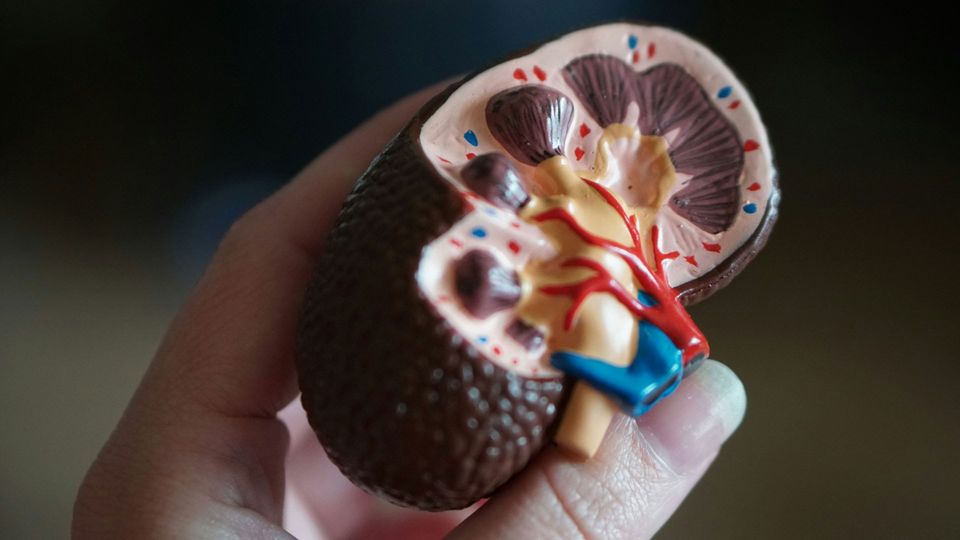Estrogen Blocks Ferroptosis, Protecting Against Kidney Failure
New research has outlined that estrogen blocks ferroptosis, protecting women from acute kidney failure.

Complete the form below to unlock access to ALL audio articles.
Acute kidney failure is a clinical challenge because it occurs frequently and there is no targeted therapy. The fact that women are less susceptible to acute kidney failure than men is not a new discovery. This observation has been around since 1940, and is also supported by epidemiological studies. However, the underlying cause of this phenomenon remains a mystery. Scientists at the University of Heidelberg, at the Mannheim Medical Faculty, are on the trail of solving this mystery. In a study recently published in the renowned journal Nature, they provide a convincing explanation for this phenomenon.
The researchers focus on the female sex hormone estrogen and the process of ferroptosis, an iron-dependent form of regulated cell death. They found that estrogens block ferroptosis. This is consistent with the observation that the protection afforded to the kidneys of women is lost with menopause, when sex hormone production declines. Interestingly, estrogen, and especially its hydroxylated derivatives such as 2-hydroxyestradiol, are key mediators of a multifaceted female defense system: The hormone exerts its function as a ferroptosis defense system in various ways, via genomic and non-genomic mechanisms.
It was shown that the natural hormone acts like the body's own drug against ferroptosis. In addition, estrogen initiates various biological systems via the estrogen receptor in the cell nucleus that can be considered defense mechanisms against ferroptosis. For example, the receptor regulates the production of hydropersulfides, which act as radical scavengers to keep ferroptosis in check. Furthermore, estrogen receptor stimulation also counteracts the alteration of certain fats in the cell membrane, so-called ether lipids, and thus also inhibits ferroptosis.
These observations offer interesting starting points for the treatment of kidney diseases. But not only that! Ferroptosis is important for a variety of disease processes. "Our findings could have implications far beyond the kidneys, even for cancer research. They bring ferroptosis into focus, including gender differences between men and women, including those related to heart disease and stroke, from which women are more protected than men, and the notoriously higher life expectancy of women," explains Professor Dr. Andreas Linkermann, Director of the Fifth Department of Medicine at Mannheim University Hospital and last author of the Nature publication.
The potential implications of this work for other diseases, and in other contexts, are difficult to assess. Ethical issues may also be affected, for example, in transplantation medicine, where the question could arise as to whether organs from female donors – before menopause – are "more valuable" than those from male donors because they are less susceptible to the surgical procedure of organ transplantation. "The significance of ferroptosis is truly opening up a whole new field of research," concludes Andreas Linkermann.
News and Views
The world-renowned expert in the field, Tom Vanden Berghe, also recognized the far-reaching potential of the findings of the Mannheim nephrologists researching at Heidelberg University. In his "News and Views," published in the same issue of Nature under the title " Estrogen defends against kidney damage caused by iron-dependent cell death ," he concludes:
"The work represents a milestone in our understanding of sex differences in acute kidney injury and expands the physiological relevance of ferroptosis beyond cancer and neurodegeneration. Importantly, these findings may help explain the increased susceptibility to acute kidney injury in postmenopausal women and provide a rational basis for exploring estrogenic metabolites or ferroptosis inhibitors as therapeutics. As ferroptosis is gaining importance as a central mechanism of tissue injury, this study underscores the importance of sex as a biological variable in its regulation."
Reference: Tonnus W, Maremonti F, Gavali S, et al. Multiple oestradiol functions inhibit ferroptosis and acute kidney injury. Nature. 2025. doi: 10.1038/s41586-025-09389-x
This article has been republished from the following materials. Note: material may have been edited for length and content. For further information, please contact the cited source. Our press release publishing policy can be accessed here.

